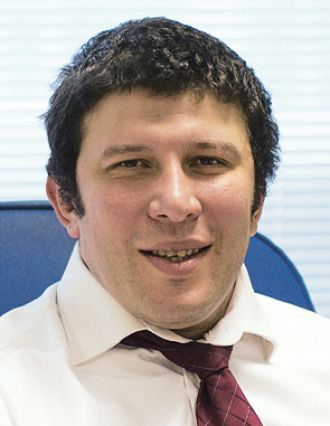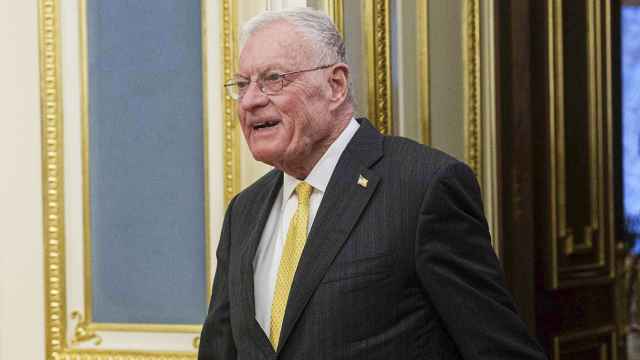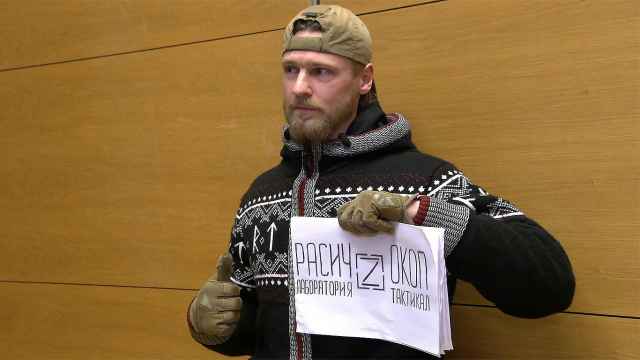The MT Conferences section did not involve the reporting or the editorial staff of The Moscow Times.
 Ovanes Oganisyan
Ovanes Oganisyan
Analyst
Midlincoln Research
International investors classify markets as being developed, emerging or frontier. Developed markets are the least risky, while emerging markets have more risk, and their state of economy also corresponds to the developing world. Frontier markets have the most risk, and their state of economy is the least developed.
This summer, MSCI announced its decision to reclassify the MSCI Qatar and MSCI UAE Indices from Frontier Markets to Emerging Markets and the MSCI Morocco Index from Emerging Markets to Frontier Markets.
The reclassifications of the Morocco Indices will take effect in December 2013.
Reclassification of Qatar and UAE to emerging markets will take another 6 months and is scheduled for May 2014
Meanwhile, MSCI is looking at the possibility of switching to China A shares for the MSCI China universe in connection with access to domestic markets improvements made by Chinese authorities.
MSCI is also looking at potential reclassification of Taiwan and Korea as developed markets, but the decision to reclassify them will be made next June at the earliest.
The reclassification of China's A shares to qualify for emerging-markets index potential is quite damaging for the remaining emerging markets. The current weight of China in the MSCI Emerging markets index is roughly 18 percent, corresponding to free float of roughly $500 billion or 40 percent. The domestic Chinese free float as is domestic Chinese market cap is at least 3 times as much. Therefore, China's potential weight in the MSCI GEM index can reach 40-50 percent of the GEM index when liberalization of the domestic market is complete.
While China's importance in emerging markets is on the rise, some markets are on a declining path, or at least stagnating.
In 2006, Russia's weight in the emerging-market index was 5.7 percent. corresponding to roughly $100 billion in free float. That was before the Gazprom ring-fence liberalization, when Gazprom's free float was only 3 percent and Sberbank's free float was at 20 percent as investment limits into Sberbank were formally still there. Magnit stock did not exist, Uralkali was hugely illiquid and a central depository was not even in the works.
In 2013, 7 years later, Russia's free float in MSCI GEM universe is only $200 billion, while its weight in the MSCI GEM index is just 1 percentage point higher. In 2006, the Russian universe in MSCI emerging markets only contained 20 stocks. In 2013, that number only increased to 25, though analysts had predicted that there would be at least 50 stocks in the MSCI Russia universe by 2012.
With Qatar and UAE markets being promoted from frontier to emerging markets, Russia is unfortunately on the declining path. It is not yet dropping to the level of frontier markets, but its importance in the overall emerging-markets universe is way lower than that of Korea, China, Brazil, Taiwan or even South Africa.
Russia trades at lower multiples then Columbia or Pakistan that were demoted to Frontier Markets from emerging markets status.
In 2006, MSCI decided to remove Venezuelan stocks from its GEM index. At that time, the MSCI Venezuela index contained shares of 5 stocks from 4 companies that included 3 banks and a telecom company. The weight of these stocks traded on the stock exchange in Caracas was only 0.085 percent in MSCI GEM universe.
The MSCI made its decision to remove Venezuelan stocks from the GEM universe only 7 years later, following Hugo Chavez becoming president of Venezuela in 1999. That was despite the fact that in 2006 Venezuela was the largest OPEC country by oil reserves, e.g. it held 24.8 percent of OPEC crude reserves vs. Saudi Arabia 22.1 percent share of OPEC reserves. Pumping daily over 3 million barrels of oil, Venezuela was selling $180 million worth of crude daily (assuming an oil price of $60/bbl)
A succession of power in Venezuela following the death of Hugo Chavez did not make perception of Venezuela any more interesting in foreign investors eyes either.
Russia has been lucky so far that protests did not involve more radical forms and did not result in any restrictions on capital controls.
Egypt, once looked at as the cornerstone of Middle Eastern stability and a prominent member of emerging-market universe, could be reclassified as a frontier markets. MSCI is looking at Egypt in light of the recent events and the inability of foreign investors to repatriate their funds due to foreign exchange restrictions MSCI could therefore launch consultations to move Egypt down to the frontier market level.
There is another possible reason why Russia's stock market has been lagging in development: it has been said that Putin does not like stocks and does not like equity investors. It has been frequently noted that he understands bonds, and he likes private equity. But he is quite cautious of public equity and shareholder democracy, So he frequently makes moves against public equity holders such as Yukos and Mechel.
On the other hand, stock market size is by no means a measure of a country's level of civilization and development. Ukraine, which is about to move very close to joining Europe, one of the highest modern criteria for being civilized, has a stock market that barely makes the frontier market criteria and has only one liquid stock.
At the same time, Greece, the cradle of Western civilization, is being demoted an emerging market from developed market status by the MSCI. Reclassification of Greece is also scheduled for June 2014.
In fact, stock market success has nothing to do with overall country success on the international arena. The Tehran stock exchange lists 339 companies with a combined market capitalization of $104.21 billion and $16 million traded daily.
The MT Conferences section did not involve the reporting or the editorial staff of The Moscow Times.
A Message from The Moscow Times:
Dear readers,
We are facing unprecedented challenges. Russia's Prosecutor General's Office has designated The Moscow Times as an "undesirable" organization, criminalizing our work and putting our staff at risk of prosecution. This follows our earlier unjust labeling as a "foreign agent."
These actions are direct attempts to silence independent journalism in Russia. The authorities claim our work "discredits the decisions of the Russian leadership." We see things differently: we strive to provide accurate, unbiased reporting on Russia.
We, the journalists of The Moscow Times, refuse to be silenced. But to continue our work, we need your help.
Your support, no matter how small, makes a world of difference. If you can, please support us monthly starting from just $2. It's quick to set up, and every contribution makes a significant impact.
By supporting The Moscow Times, you're defending open, independent journalism in the face of repression. Thank you for standing with us.
Remind me later.





